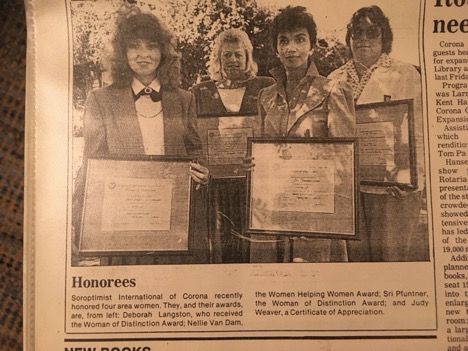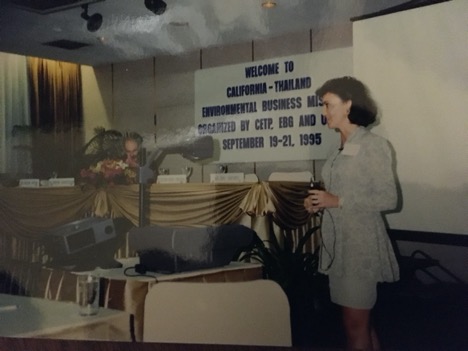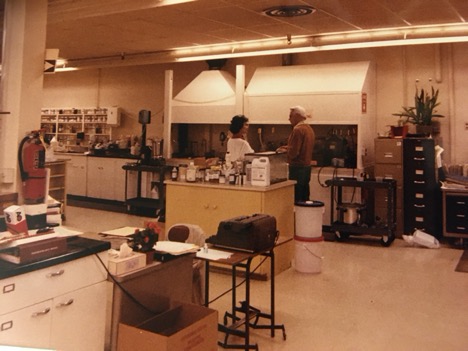
I recently had the pleasure speaking with Sri Hartono, an Asian American businesswoman.
Sri has worked within the agricultural supply chain for over thirty years. Sri’s diverse career ranges from a project leader with Sunkist Growers, to being the founder and owner of C.L. Technology, Inc., a full service (chemistry & micro-biology) laboratory, of which pesticide and bio-pesticide EPA registration field trial requirements were part of their services, to global marketing manager with Agrofresh, to supply chain technical management with Tesco U.S., Fresh & Easy. As managing partner of Hartono & Co., Sri served as a consultant to the agricultural and retail industry for the implementation of best practices within the industry. Sri has led and facilitated the Hawaii Department of Agriculture Task Force in developing Hawaii-specific GAP guidelines, with emphasis on high-risk crops, and to assist local Hawaiian farmers in expanding market opportunities. In her recent role as Technical Director for Jacobs Farm/Del Cabo, Inc., Sri provided leadership for Jacobs Farm/Del Cabo’s Quality and Food Safety Management global activities.

Sri possesses a Master of Science degree in Analytical Chemistry from the University of CA, Riverside and a Bachelor of Science in Chemistry from CA State University, San Jose. Her industry focus is crop quality management and accountability within the retail supply base, i.e., implementing and facilitating industry best practices concerning quality, sustainability, and compliance with food safety and ethical standards within the supply chain from field to fork.
I asked Sri a few questions regarding her business and her success, and any advice she has for younger generations.

What was your motivation to start your own business?
“I’m sure you’ve heard of the Glass Ceiling. I was in a male dominated field. I was the highest paid professional in Sunkist but they were trying to oppress me because I got a project that was supposed to go to someone else, a male. I decided to resign because I couldn’t deal with it anymore. There was way too much prejudice. I had the opportunity to sue them but it would’ve taken years to fight them for justice and equality. I found myself unemployed and didn’t know what I wanted to do. When I was with Sunkist, I developed a system for the citrus packing houses to have a technical survey for the quality of citrus that combined the fertilizers, sanitation, etc. from farm to table. Packing houses requested me to put the program together for the packing houses after being resigned. A friend, Art Dawson, helped me set up a business because I had no clue what I was doing. I had one customer which was the packing house from Sunkist because they really liked the system. I literally started this business from the trunk of my car. I’d pick up the fruit and take it to a lab to ask if I can do an analysis there and rented a space in the lab and they allowed me to work there if I shared some of the fees, so I made an arrangement. I was wasting money so I thought it would be helpful to have my own lab so I started on my kitchen table essentially. Another friend, Debbie Langston, joined me because she hated how Sunkist was running their business (in reference to the glass ceiling). So I had created this entire business from scratch with Debbie and Art and slowly but surely, we developed the business that employed over 40 people over two buildings and it grew. 10 years later, someone wanted to buy the whole thing so I sold it. I kept the consulting part of the business and sold the lab and re-partnered with Art and set up another business [with headquarters in France and] factories in Italy and they wanted to introduce their products in the U.S. but didn’t know how. They wanted to utilize my services, so I partnered with Art and we developed that. The key to it is knowing what your customers want and giving that service to the customer. Not necessarily the supply and demand but understand the business that you’re in. Once you have that make sure you pride yourself and understand how much they’re willing to pay for your service. That’s the key in starting your business. Everyone can start a business, but maintaining your business is the hardest part.”

What did a typical day look like for you when you were in the industry?
“*laughs* There is no such thing. A typical day is not an 8-hour day, it’s a 24-hour day, 7 days a week. When you own your own business, sometimes it’s so consuming [that] there is no start time and no end time. Your family is going to have to understand that you are the business. Sometimes you work 18-hour days, sometime 2-hour days and sometimes 24-hour days. That’s owning a business. You better darn well know that your support group understands that this is going to be all-consuming. A typical day is everything from fighting fires to sailing into the sunset. It’s like being in an ER room, you may not have any patients, and sometimes you’ll be totally inundated with a tsunami of patients.”
What was the most challenging and most rewarding thing about having your own business?
“Most challenging is the money handling. My accounts receivables were the most challenging because you’ll go broke if someone doesn’t pay you. The most rewarding, I think is something that I can say I started; it was my baby, it’s something that I developed on my own and everyone needed it. Self-satisfaction is a good way to put it. You can say, ‘Damn, I did that.’”
Do you have any advice for future students looking to start their own business?
“Start making sure you know everything there is to know about basic accounting before you start thinking about having a business. If you know how to balance a checkbook and not go broke, once you have that basic accounting, you can start your business. Then understanding who your customer base is to be. What are you selling and who are you selling to? If you don’t understand your customer base then you may as well forget the business.”
